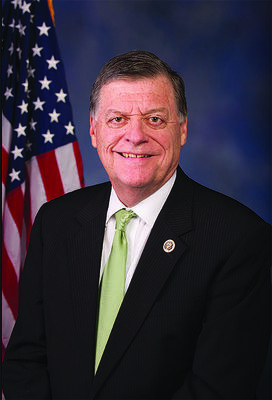Unanswered questions on Afghanistan

One year ago this month, our nation witnessed one of the worst foreign policy failures of any presidential administration when President Joe Biden decided to withdraw all remaining U.S. troops out of Afghanistan. The aftermath of that decision in the days and weeks that followed was nothing short of disastrous, and the devastation and consequences of this failure remain. Unfortunately, the Biden Administration has still left many questions surrounding this decision unanswered, a true disservice to the American people.
This debacle certainly calls for vigorous oversight. It is frankly stunning how little the press or even the Democrat-controlled Congress have dug into why the Administration made such decisions then. In fact, one year later, there are more unanswered questions than answers. We still do not know why the Biden Administration was compelled by the Taliban deadline, why President Biden chose a total withdrawal over a partial withdrawal and what consultation was made with military officials and experts familiar with the country. We also are still unsure why troops were taken out before civilians or what steps were taken beforehand, if any, to help Americans get out of this dangerous situation safely – or whether they even took steps to identify and locate U.S. citizens in the country in advance.
We know that billions of dollars worth of sensitive U.S.-supplied military equipment, vehicles and weapons given to the Afghan government were hastily abandoned and fell into possession of the Taliban and other bad actors. Moreover, we still do not understand why the decision was made to abandon Bagram Air Force Base – our most significant base in the area for deterring Taliban incursions and a forward position for staging critical assets and providing training to Afghans. We know anecdotally that our European allies were caught off guard and surprised by this withdrawal, which begs the question of if consultation with our allies took place before the Biden Administration made this decision.
The consequences of this reckless and hasty retreat undoubtedly emboldened our adversaries. The Biden Administration projected weakness on the international stage, and other countries that are not friends of ours took advantage. First, we saw Russian President Vladimir Putin’s unjust invasion of Ukraine earlier this year.
Meanwhile, China continues to become increasingly more aggressive in the Taiwan Strait and even threatened U.S. officials while they were traveling to Taiwan.
President Biden’s response is still denial of what occurred last August. In fact, he continues to deny congressional requests for information and has not been forthright with the American people. And although unprecedented peace was reached just a few years ago in the Middle East, this botched withdrawal ultimately caused a reemergence of the Taliban in Afghanistan and opened the door for al Qaeda reentry.
For several weeks, Americans watched in horror as several hundreds of U.S. civilians and our allies were left stranded and unsafe in the hands of an unsympathetic, brutal terrorist regime. However, the most tragic outcome of this withdrawal was for the 13 families who did not have their son, daughter, spouse, mother or father return home. Because of the Biden Administration’s complete incompetence and inability to listen to military advisors, 13 U.S. service members were killed by a suicide bomber while selflessly guiding others to safety. This attack was the single deadliest day for American forces in Afghanistan since 2011, and more than anyone else, these families are owed answers.
Our brave men and women in the U.S. military fought the Taliban and other elements of terror in Afghanistan for two decades to promote democracy, help stabilize the region and foster peace in this struggling nation.
As commander in chief, President Biden cannot point fingers or blame anyone else for this embarrassment on the international stage but himself. The American people deserve answers as to why he hastily chose to withdraw the modest American force left in Afghanistan, against his advisors’ will, critical to maintaining stability and holding the Taliban at bay.
Please support The Comanche Times by subscribing today!
%> %> %> "%> "%> %> %> %> %>
